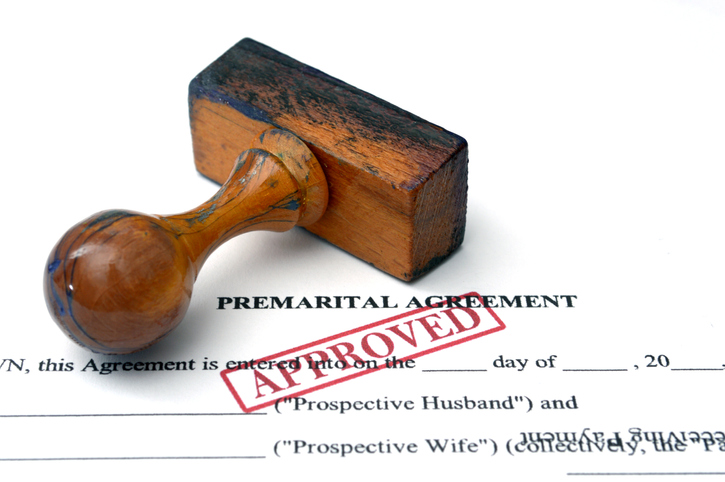 The trial court must divide property in a just and right manner in a Texas divorce. The division must be equitable, and should not be punitive against either spouse. A husband recently challenged a property division, arguing it had been punitive against him.
The trial court must divide property in a just and right manner in a Texas divorce. The division must be equitable, and should not be punitive against either spouse. A husband recently challenged a property division, arguing it had been punitive against him.
The wife filed for divorce after the parties had been married for over 30 years. She alleged the husband had engaged in cruel treatment and had committed fraud on the community estate.
Wife’s Trial Testimony Highlighted Abusive Marriage
The wife said the husband often disparaged her appearance, individual worth, and profession in front of others and in private. According to appeals court’s opinion, the husband earned significantly more money than the wife and controlled the couple’s finances. The wife said the husband used his control of the couple’s finances punitively and, for example, would not give her money to go to Poland to visit her family when they were sick and would not pay for a surgery she needed. She also testified that he said her mother had died of a stroke because she was a bad daughter and a bad person. Other witnesses, including the couple’s daughter, corroborated the wife’s allegations of verbal abuse. The husband, however, denied it and claimed they were all liars.
 Texas Divorce Attorney Blog
Texas Divorce Attorney Blog


 A trial court must divide community property in a “just and right” manner in a Texas divorce. The court must properly characterize the property before it in order to achieve a just and right division. Characterization can be complex when the parties have significant assets acquired through various means. It can get even more complicated when the parties have ownership interests in business entities that also own property.
A trial court must divide community property in a “just and right” manner in a Texas divorce. The court must properly characterize the property before it in order to achieve a just and right division. Characterization can be complex when the parties have significant assets acquired through various means. It can get even more complicated when the parties have ownership interests in business entities that also own property. Texas family law considers Social Security disability benefits to be a substitute for the parent’s earnings. Pursuant to Tex. Fam. Code § 157.009, when a child receives a lump-sum payment due to the parent’s disability, the parent is entitled to a credit applied to any arrearage and interest. Additionally, when a trial court applies the child support guidelines to a parent who receives disability benefits, the court must determine how much child support would be ordered under the guidelines then subtract the value of any benefits paid to the child as a result of the parent’s disability. Tex. Fam. Code § 154.132.
Texas family law considers Social Security disability benefits to be a substitute for the parent’s earnings. Pursuant to Tex. Fam. Code § 157.009, when a child receives a lump-sum payment due to the parent’s disability, the parent is entitled to a credit applied to any arrearage and interest. Additionally, when a trial court applies the child support guidelines to a parent who receives disability benefits, the court must determine how much child support would be ordered under the guidelines then subtract the value of any benefits paid to the child as a result of the parent’s disability. Tex. Fam. Code § 154.132. Texas is one of the few states that still recognizes “informal marriage,” also sometimes known as “common law marriage.” A party who petitions for divorce from an informal marriage often must prove the existence of the informal marriage in the first place. To prove there was an informal marriage, the party must show the couple had an agreement to be married, subsequently lived as spouses together in Texas, and represented themselves as married. Tex. Fam. Code Ann. § 2.401. Furthermore, all of these elements must occur at the same time. Evidence of an informal marriage may include evidence the parties addressed each other as spouses, conducted themselves as married people, or lived together. Evidence that the parties lived together and represented themselves as married is not alone sufficient to establish the existence of an agreement to be married.
Texas is one of the few states that still recognizes “informal marriage,” also sometimes known as “common law marriage.” A party who petitions for divorce from an informal marriage often must prove the existence of the informal marriage in the first place. To prove there was an informal marriage, the party must show the couple had an agreement to be married, subsequently lived as spouses together in Texas, and represented themselves as married. Tex. Fam. Code Ann. § 2.401. Furthermore, all of these elements must occur at the same time. Evidence of an informal marriage may include evidence the parties addressed each other as spouses, conducted themselves as married people, or lived together. Evidence that the parties lived together and represented themselves as married is not alone sufficient to establish the existence of an agreement to be married. In a Texas divorce, a jury may decide issues regarding the characterization and valuation of property, but the judge is responsible for actually dividing the community property in a just and right manner. The court may consider a number of factors, including fault, education, ages and physical conditions, financial conditions, and the amount of separate property. Generally, the court must hold an evidentiary hearing or trial, unless the parties agree on the property division.
In a Texas divorce, a jury may decide issues regarding the characterization and valuation of property, but the judge is responsible for actually dividing the community property in a just and right manner. The court may consider a number of factors, including fault, education, ages and physical conditions, financial conditions, and the amount of separate property. Generally, the court must hold an evidentiary hearing or trial, unless the parties agree on the property division. Retirement benefits can be a complex and contentious issue in a Texas divorce case. Generally, any income earned during marriage is considered community property unless proven to be separate property, including funds contributed to a retirement account or earned as pension benefits. In a recent case, a husband
Retirement benefits can be a complex and contentious issue in a Texas divorce case. Generally, any income earned during marriage is considered community property unless proven to be separate property, including funds contributed to a retirement account or earned as pension benefits. In a recent case, a husband 
 In Texas custody cases, it can be very difficult for a non-parent to obtain custody or visitation of a child over the objection of a parent. In some circumstances, however, a non-parent (such as a grandparent) has the right to file suit seeking custody or visitation. One such circumstance is when the person has recently had care, custody, and control of the child for at least six months.
In Texas custody cases, it can be very difficult for a non-parent to obtain custody or visitation of a child over the objection of a parent. In some circumstances, however, a non-parent (such as a grandparent) has the right to file suit seeking custody or visitation. One such circumstance is when the person has recently had care, custody, and control of the child for at least six months.
